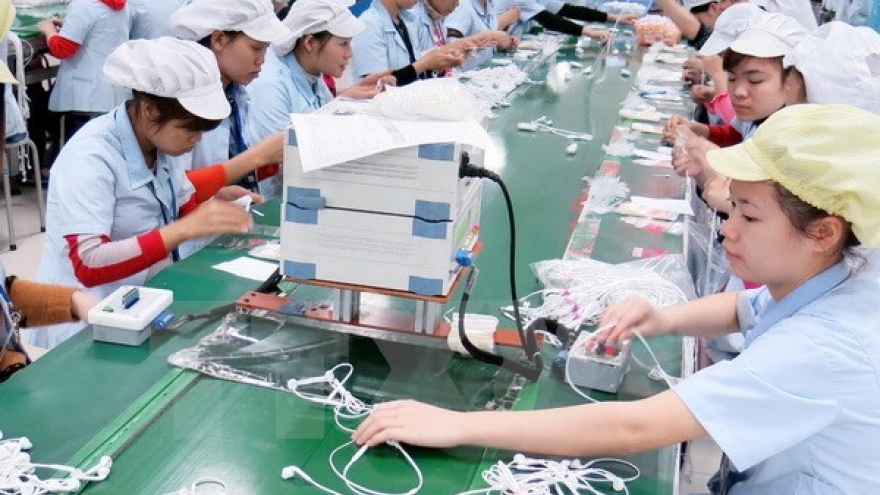ROK businesses in Vietnam look to boost profitability
VOV.VN - Transnational companies from the Republic of Korea (ROK) operating in Vietnam have yet to yield the profit levels they anticipated from investments in the emerging Southeast Asian country’s market, according to trade reports.
 |
The rate of gross earnings was 2.3% (1.1% less than the 3.4% expected) and net earnings was 0.6% (2.0% below the anticipated 2.6% originally forecast) for Asian companies doing business in Vietnam.
The report said the profit performance might improve once a mega free trade agreement currently in the final stages of negotiation is concluded.
The 10 member states of the Association of Southeast Asian Nations plus the ROK, China, Japan, Australia, New Zealand and India are working on a Regional Comprehensive Economic Partnership that would create an economic bloc accounting for half of the globe’s population and nearly 30% of global gross domestic product.
The KOTRA report said the benefit of the new partnership for the ROK is that it can import raw materials and intermediary goods at a lower cost from among the participating countries and export finished products to countries like Vietnam.
Such process would bolster added value for ROK exporters, the report said, and elevate profits from sales in Vietnam.
Profitability of our companies should improve if they utilize the new partnership, Choi Yoon-jeong at KOTRA's global market strategy office has said. We need to set up a high-core strategy in advancing into Vietnam with a global value chain and the new partnership in mind.
Meanwhile, KOTRA reported that the expected profit boost from the first year of a free trade agreement between the ROK and Vietnam that came into force in December 2015 has yet failed to materialize.
As outlined in the agreement, Vietnam had agreed to phase in the elimination of import duties for 89.9% of ROK exports over a 15-year period and similarly the ROK in turn would remove tariffs for 95.4% of total import line items from Vietnam.
However, KOTRA said that a recent survey of ROK businesses operating in Vietnam showed that only an inconsequential 42% of the 60-surveyed said their sales went up because of the agreement and the effect on earnings remains unclear.
Roughly 6 out of 10 (63%) had a more favourable outlook on prospects for enhanced profits in 2017.
Tran Minh Trang, deputy head of the Ministry of Industry and Trade Export-Import Department, has said that Vietnamese businesses also have failed to gain in earnings from the new free trade agreement in its first year.
During the initial year, local businesses have neglected to pay attention to product quality considerations and in many instances agricultural exports were flatly rejected by the ROK government for import.
In addition, they did not pay proper heed to the ROK consumer and to simple things like utilizing attractive and eye-appealing packaging with interesting designs— all signs that local businesses are not capitalizing on the opportunities the new trade agreement offers.
Clearly local businesses are failing in the ROK market, she underscored, and if they hope to move to the top of the pyramid they need to rethink their strategies and institute structural changes and a strong commitment to win.



